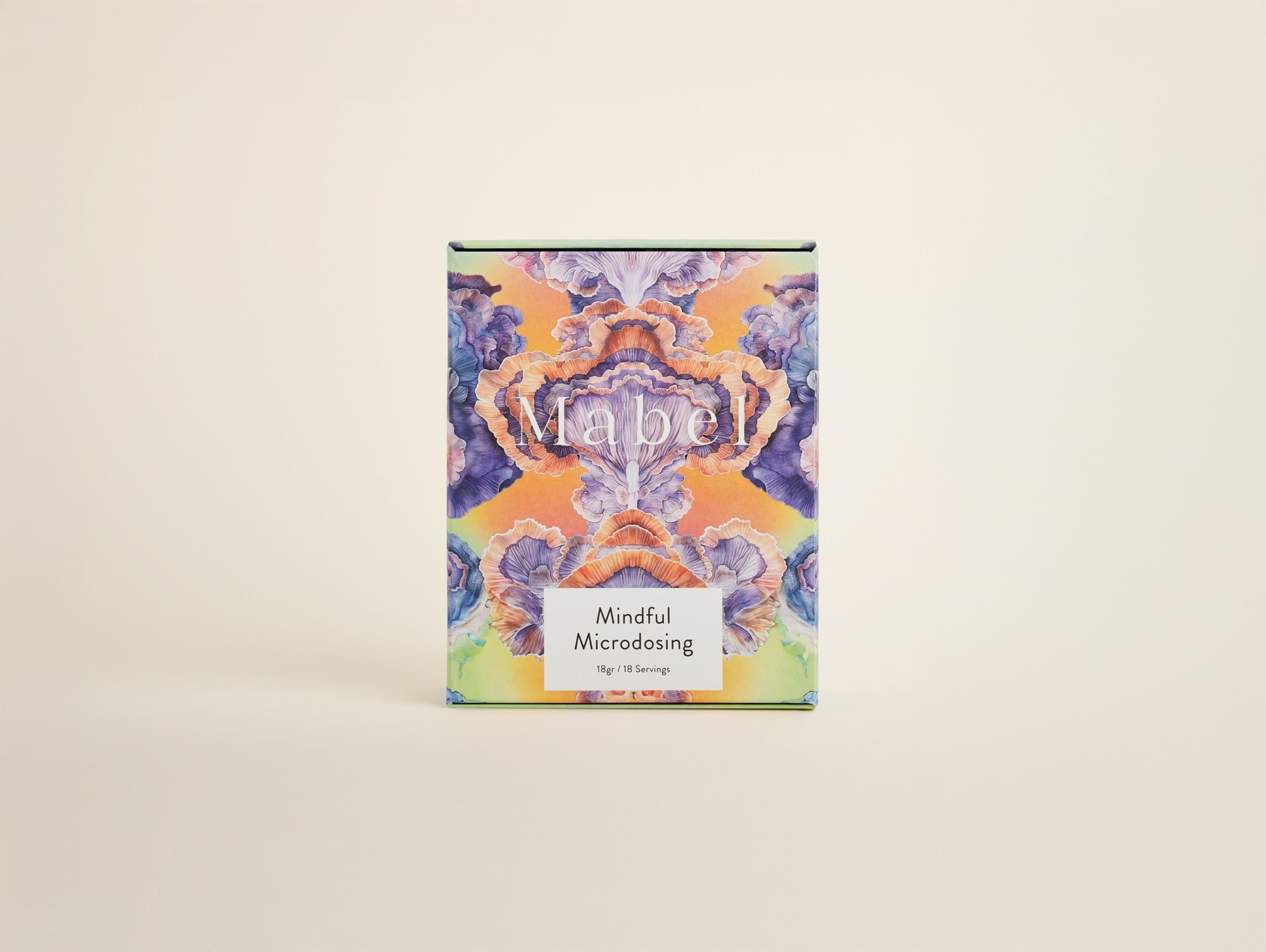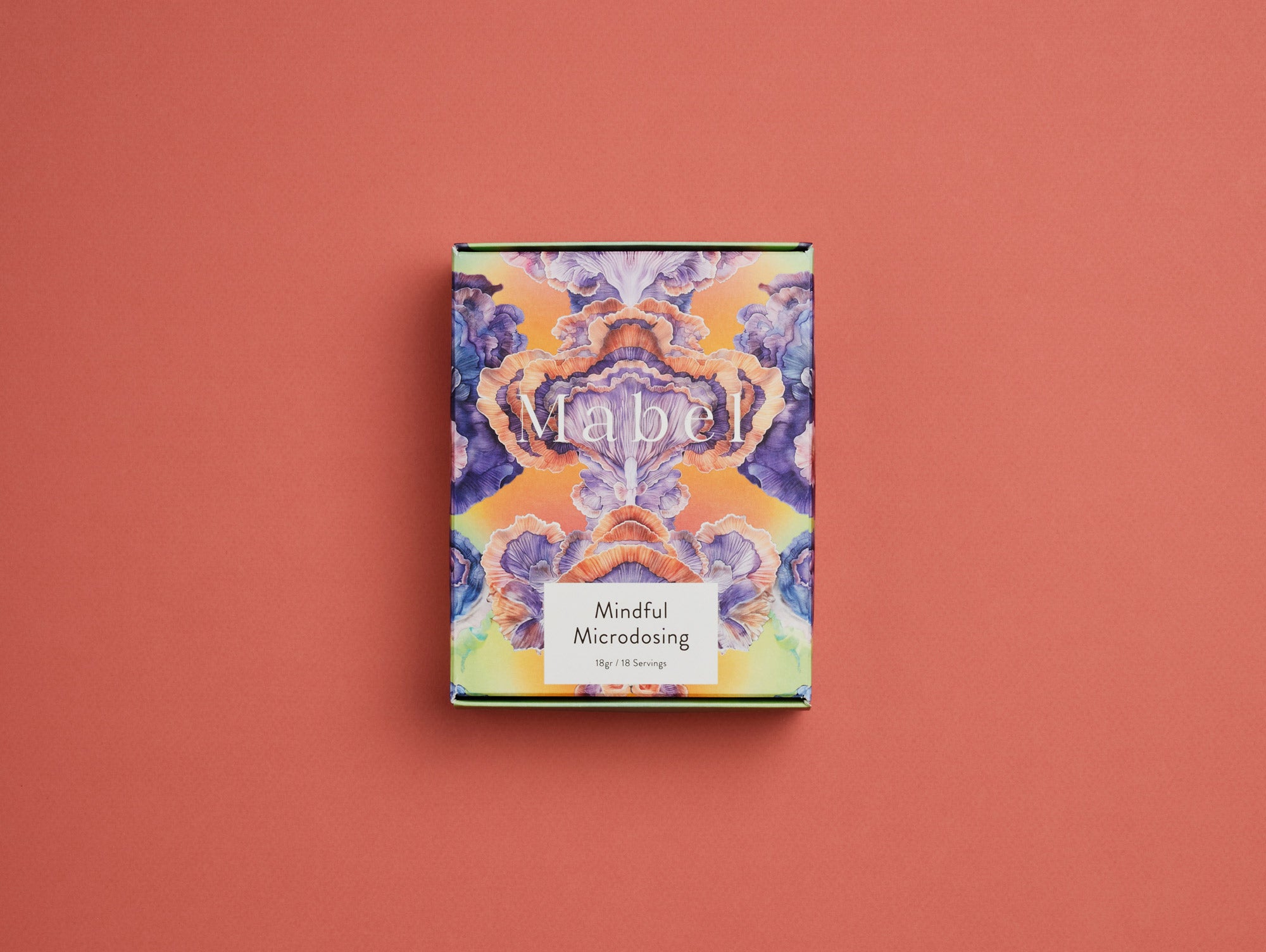Motherhood is a journey like no other, filled with joy, challenges, and moments of profound transformation. Yet, in a world that often leave a new mum feeling isolated and unsupported, many are seeking ways to up the game on their mental health. Enter microdosing, the practice of taking a tiny amount of a psychedelic compound, in our case psilocybin, which is found in about 200 species of mushrooms. Celebrated for its potential to enhance mood and reduce anxiety, microdosing has sparked curiosity among mothers navigating parenting and even postpartum depression. Could this natural compound help ease the mental and emotional toll?
This article explores the emotional, cultural, and scientific facets of microdosing while addressing its potential risks and alternatives.
Why more mothers are microdosing
In today’s fast-paced world, women are the ones carrying the weight of societal expectations. Mix that with the physical and emotional toll of pregnancy, postpartum recovery and the isolation most feels, its not surprising that more than 20% of new mothers experiencing postpartum depression (PPD), This condition is not just about sadness, it can manifest as crushing fatigue, irritability, feelings of inadequacy, and detachment from loved ones. For many, traditional treatments like therapy or antidepressants fall short, leaving them in search of alternatives.
I feel like a new and better mother
Microdosing psilocybin is a growing practice in the United States and beyond. A rising community of mothers have turned to microdosing and share stories of renewed emotional resilience, reduced anxiety, and a rekindled sense of connection, not just to themselves but to their children and partner.
It felt like the first time I had sat down since becoming a mother. And it made me wonder if I could, in fact, hold it all. Light and dark, grief and gratitude, sun and snow. I came up with no answer. I just wondered.
&
“I’ll take a very small dose every three or four days. It gives me an alertness, an assurance. I move from a place of anxiety to a normal state of confidence, not overconfidence.”
Microdosing while pregnant or breastfeeding
To date, no studies have directly examined the safety of microdosing psilocybin during pregnancy or breastfeeding. Psilocybin metabolizes into psilocin, which is largely eliminated from the bloodstream within 24 hours.
Potential risks
-
Transfer through breast milk: While psilocybin breaks down quickly, psilocin’s lipid-soluble nature means it could pass into breast milk. The exact concentration and effects on a nursing child are unclear.
-
Impact on development: A baby’s brain undergoes rapid development during pregnancy and the early months of life. Even in microdoses, external compounds might pose unknown risks to these sensitive processes.
While these risks are concerning, it’s also important to acknowledge that untreated maternal mental health challenges can have profound effects on both mother and child. Striking a balance is crucial, and any decision should involve careful consideration and support from healthcare professionals.
Indiginous perspectives
For millennia, Indigenous cultures have used plant medicines during pivotal life events, including pregnancy and breastfeeding. For example:
-
The Shipibo-Konibo people of Peru incorporate small doses of ayahuasca in ceremonies to strengthen the bond between mother and child.
-
The Wixárika (Huichol) people of Mexico believe that consuming peyote during pregnancy can positively influence a child’s cognitive and sensory development.
These traditions emphasize the spiritual and relational aspects of plant medicines, often under the guidance of experienced practitioners. However, these practices are deeply rooted in specific cultural contexts and cannot be directly equated with modern microdosing practices.
What to consider if you’re exploring microdosing
If you’re considering microdosing during pregnancy or breastfeeding, here are some important points to keep in mind:
-
Start small: If you choose to microdose, keep doses minimal (e.g., 0.1g of psilocybin truffles).
-
Space it out: Use an intermittent schedule, one every 3rd day.
-
Plan for breastfeeding days: If breastfeeding, consider pumping and storing milk in advance to use during microdosing days. Discard milk produced within 24-36 hours of dosing.
-
Seek professional guidance: Consult with a healthcare provider experienced in integrative or functional medicine to discuss your specific needs and risks.
While these precautions may minimize risks, they cannot eliminate them entirely. Proceeding with caution is essential.
Functional mushrooms: An alternative
For expectant or breastfeeding mothers who want to avoid the uncertainties of psilocybin but who are still seeking xtra support, functional mushrooms provide a natural and powerful alternative. These adaptogens are well-studied and offer a range of benefits:
-
Lion’s Mane: Promotes cognitive function and emotional balance.
-
Reishi: Known for its calming properties, it helps manage stress and improve sleep quality.
-
Chaga: Packed with antioxidants, it supports immune health and combats fatigue.
Unlike psilocybin, functional mushrooms are widely regarded as safe for use during pregnancy and breastfeeding, making them an excellent option for mothers prioritizing their wellbeing.
Final thoughts: A personal journey
The decision to microdose during pregnancy or breastfeeding is deeply personal and complex. While scientific evidence is currently lacking, many mothers prioritize their mental health as an essential foundation for nurturing their children. Functional mushrooms on the other hand offer a safe and effective alternative for those who want to explore natural supports without the uncertainties of psilocybin.
Whatever path you choose, know that you are part of a larger community of mothers seeking to thrive, not just survive. Whether through therapy, mindfulness practices, or holistic wellness tools, you have options to create a foundation of health for yourself and your baby.
If you have questions or need additional resources, don’t hesitate to reach out. We’re here to support you on this journey.
Disclaimer: This article is for informational purposes only and does not constitute medical advice. Please consult a healthcare provider before making decisions about microdosing or other treatments during pregnancy or breastfeeding.
Founder of Mabel
![]()
Disclaimer: This content is for informational purposes only and not medical advice.
Our Microdosing
Psilocybin microdosing has gained real momentum over the past decade for its unique ability to gently disrupt negative thought loops and ruminative patterns, offering a sense of reset and renewed perspective, especially for people who haven’t felt helped by more traditional approaches
Read more

Setting goals is easy, sticking to them is tricky Whether it’s building new habits, pursuing long-term ambitions, or simply following through on everyday plans, most of us struggle to keep the prom...

We’re excited to introduce Amir Lotfi, our Chief Scientific Officer at Mabel. In addition to his pivotal role with us, Amir serves as Senior Director at Beckley Psytech, the renowned institution fo...




